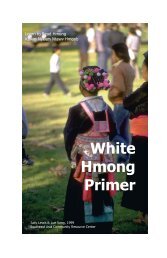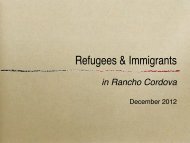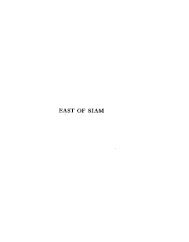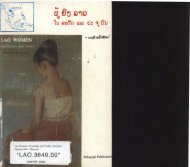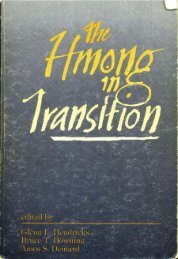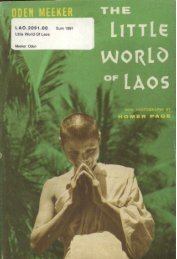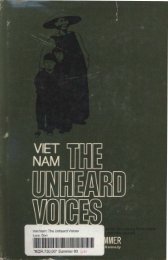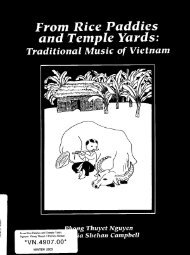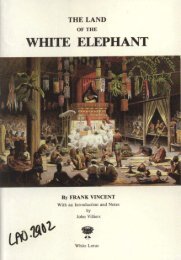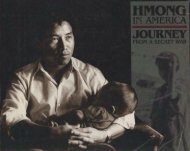PEOPLE
Grant, The Boat People - Refugee Educators' Network
Grant, The Boat People - Refugee Educators' Network
- No tags were found...
Create successful ePaper yourself
Turn your PDF publications into a flip-book with our unique Google optimized e-Paper software.
administration and co-operativca, must be ready to evacuate to other<br />
arcas d the country. P o main areas were mentioned - the town<br />
of Vinh, several hundred kilomms south of Hanoi, and the south<br />
central highlands.) One pemn asked how long would they bt away,<br />
The answer was: until China abandoned its intentions of invading<br />
Viemam. Another pcrson asked how they would work in the new<br />
awas, The answer was: wherever possible, people would continue<br />
in their present employment, hut 'While you art waiting to obtain<br />
appropriate work the local authorities will deploy you in productive<br />
labour', At this meeting there was no mention of a 'second way' -<br />
going abroad.<br />
Vimally all the northern Hoa interviewed in Hong Kong<br />
described relations between the two ethnic groups prior to 1978 n<br />
'normal', 'good', or 'warm'. Nwly everyone, however, had some rcservations.<br />
A number of manual workers complained of petty discrimination.<br />
They said their Viemame~ colleagues did not trust<br />
them, or said 'rude things' about them Mind their backs. Hoa of<br />
various social backgrounds compiained that the ethnic Chinese w m<br />
a1 ways blamed for any rise in prices.<br />
A Chinese couple - he a 3byear-old printer, she a 25-year-old<br />
confectiontry worker - who left nonhern Vietnam on 15 April 1979,<br />
said that in Hanoi the average Viemamese wan still friendly towards<br />
Chinese, But because of the government's policy it was common for<br />
Victnamesc to tell their Hca friends bey could no longer associate,<br />
The wife had noticed that since the Sino-Vietnamese war, some<br />
Viemamese kept watch on Chinese and reported their movements<br />
to public security officials who checked their Komw regularly. The<br />
local radio station broadcast daily the names of ethnic Chincst who<br />
had been arrested for 'spying'.<br />
How did the Chinese in Victnam see themselves? How did they<br />
see Vietnam and China? Where did heir loyalties lie? A umplc of<br />
Hoa birth cenificatcs, smuggled out by refugees from the Hanoi-<br />
Haiphong area and cxamined in Hong Kong, showed that while Hoa<br />
intemnied with ethnic Vietnamese, few had adopted Vietnamc~<br />
citizenship. With striking consistency the entry 'Hoa' was followed<br />
by 'citizenship - Chinese'. This, given the efforts of the Vietnamese<br />
authorities to assimilate the Ha, suggests a persistent identity with<br />
the 'motherland' China. One refugee commented tartly: 'They tried<br />
Exodus<br />
to assimilate us - but we opposed them', The widespread citizenship<br />
bond with China also helps explain why so few Hoa went into the<br />
Vietnamese army (only volunteers joined, otherwise it would have<br />
meant conscripting foreign nationals of a powerful neighbout), and<br />
why Hoa could go to China every few years without much difficulty<br />
- a privilege not available to most Vietnamese.<br />
Some Hoa livcd in largely Vietnamese arcas, had married Viet-<br />
namese, worked with Vietnamese and knew little or no Chinese<br />
language, However, when asked about their feelings when war<br />
between China and Vietnam erupted, many were sympathetic to<br />
China. Said one: 'Some of he Vietnamese] leaders. . . arc following<br />
the Soviet Union, even though China gavc them so much aid during<br />
the war. When China struck Vietnam, I felt some sympathy for<br />
China! Another said he thought the war was a result of Vietnam's<br />
'mistaken policies'. A third said he was confused - his original sympathy<br />
for the Vietminh in the 19509 has been closely tied to pride<br />
at thc success of the revolution in China and Peking's support for<br />
the struggle in Vietnam. Another man said that 'of course China had<br />
to invade - Vieam was opposing it', The bitterat words came from<br />
a young man from Quang Ninh province: 'I was born there, grew<br />
up there, but I'm not Vimamcse. When China artacked Vietnam,<br />
I was glad. If they hadn't chased me out I would have gone anyway!<br />
For each person who was willing to discuse politics, however, there<br />
war one who was not, who felt Viemam was his or her home and<br />
had wanted to stay there,<br />
'r'liiv is what interested governments said about the boat refugees<br />
from southern Vietnam.<br />
Malaysia'5 home affairs minister, 'Tan Sri Ghazali Shafic, in an<br />
address puhlished on 29 November 1978:<br />
I<br />
1<br />
'These people an not in fear of immediate reprisal for collaborating with the<br />
US or {former Preaidenr] Thieu. They have tasted lift in the new rCgimc<br />
and.. . found it unpalatable for nne wason or anothrr,<br />
1<br />
Vietnam's secretary of state for foreign affairs, Ngt~ym Co Thach,<br />
in an interview published in the New York Tinter of 7 August 1919:<br />
I




